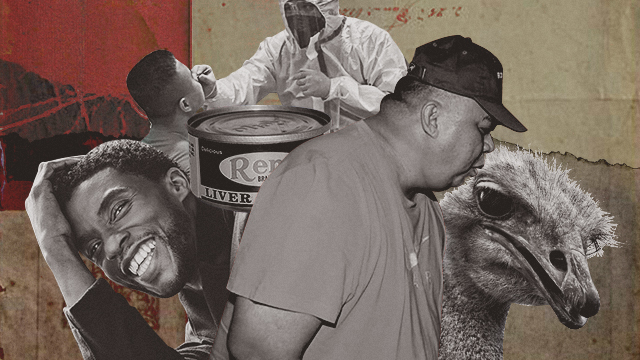
January 1, 2020 was the start of a new decade, which the world welcomed with higher hopes. When the days and months rolled in, things got so unbelievable and in rapid succession that it drew comparisons to hit Netflix sci-fi series Black Mirror.
It was especially tumultuous for Filipinos, where nature and politics delivered headline after headline that got many shaking their heads month after month. Let's look back at the biggest news of 2020, which made us think that we're in a real-life Black Mirror.
Taal Volcano kicked off 2020 with a bang.
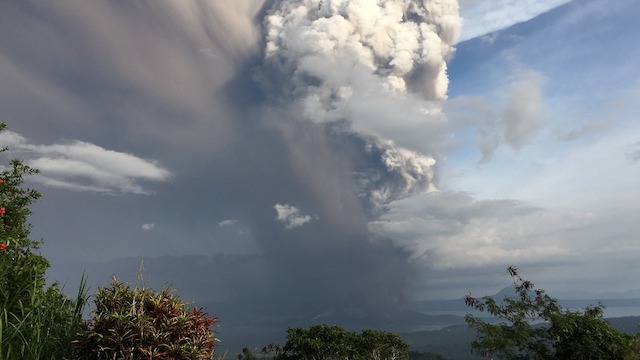
Taal Volcano erupted on January 12, its the first major eruption since 1977. This prompted President Rodrigo Duterte to place the entire Southern Tagalog region or Calabarzon under a state of calamity.
RIP Black Mamba, Black Panther, and Kween LC.
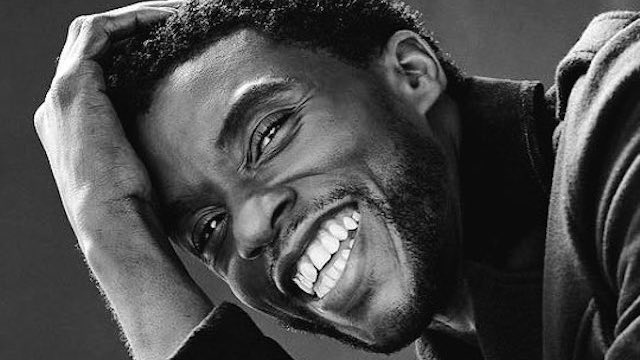
At the start of the year, Basketball-crazy Philippines was met with heartbreak with the death of legendary Los Angeles Lakers player Kobe Bryant on January 26 along with his daughter Gianna. Filipinos also joined the world in mourning the death of several other trailblazers such as Black Panther star Chadwick Boseman, and U.S. Supreme Court Justice Ruth Bader Ginsburg.
Closer to home, the deaths of vlogger Lloyd Cadena and Emman Nimedez, as well as Slapshock vocalist Jamir Garcia, broke the hearts of their fans.
COVID-19 reaches the Philippines.
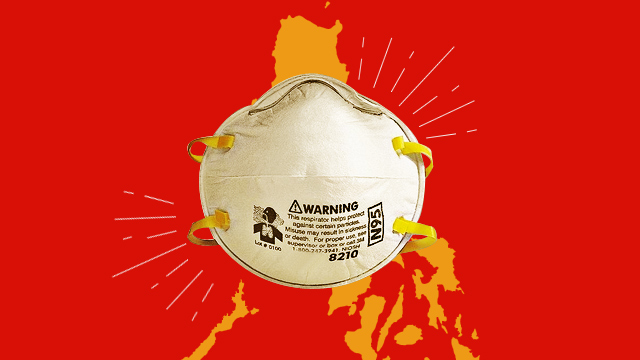
Just before January ended, Philippine health officials confirmed the country's first confirmed case of COVID-19—a 38-year-old woman who traveled to the Philippines from Wuhan, China, where the virus was first reported. The case was only the first of thousands that the country would see for the rest of the year.
It is declared a pandemic and the world was never the same.

On March 11, the world was never be the same as the World Health Organization officially declared that COVID-19 can be "characterized as a pandemic." The global health emergency declaration prompted nations across the world to declare lockdowns, shut borders, and plunged millions into joblessness. Economies were paralyzed and nations watched as the virus claimed tens of thousands of lives as no cure or vaccine was available.
Lockdowns and quarantines became a way of life.
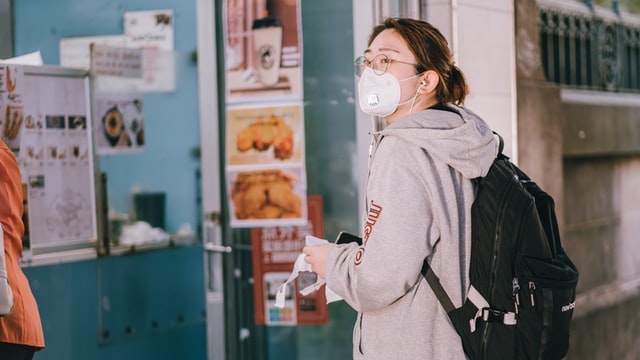
Borders were put up in Metro Manila on March 14 as the Philippine capital was placed under a region-wide enhanced community quarantine to control the spread of COVID-19. Only two days later, on March 16, the quarantine was expanded to cover the whole of Luzon. Since then, the Philippines has remained under community quarantine albeit at varying levels of restrictions.
TV screens went black as ABS-CBN goes off the air.
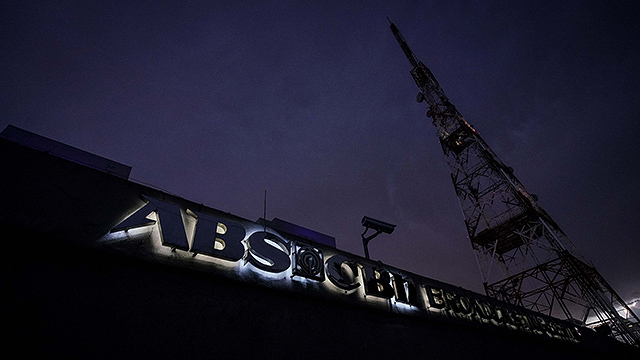
Television screens went black on May 5 as the country's biggest network ABS-CBN went off the air a day after its franchise expired. In July, the network lost its bid for a fresh license to broadcast after the House of Representatives rejected the application, forcing ABS-CBN to retrench thousands of its employees.
"Mañanita" entered the vocabulary and the celebrant became top cop.

While the country was in the thick of lockdowns in May, a police official's birthday breakfast or "mañanita" triggered public uproar, highlighting the inequal application of the law in the country. Police Major General Debold Sinas became the target of backlash for his celebration while Filipinos were forced to stay home and while mass gatherings were prohibited. The birthday gathering was again put in spotlight after Sinas was named chief of the Philippine National Police in November.
Red lipstick became a weapon against red-tagging.

Major General Antonio Parlade was called to a Senate investigation for red-tagging or implying links to the communist rebellion. He denied doing such and said he was merely warning actress Liza Soberano and former Miss Universe Catriona Gray. Angel Locsin fought back with a trend: wear red lipstick against red-tagging.
Anti-Terrorism Law is enacted in the middle of a pandemic.
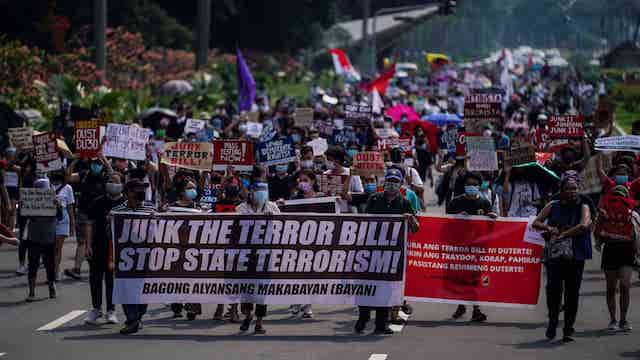
In July, President Rodrigo Duterte signed into law the Anti-Terrorism Act of 2020. Its passage was met with criticism; apart from fears that it could be used to silence government critics, it also came while the Philippines was struggling to contain the COVID-19 pandemic, an unprecedented crisis that has wiped out the economic gains of his predecessors.
Recession bites the world economy.
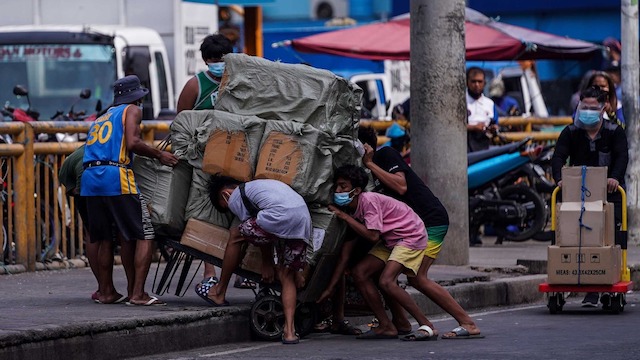
The Philippine economy plunged into recession in the second quarter of 2020, the first time in nearly 30 years, following the longest and strictest lockdowns in the world to curb the spread of COVID-19. The economy contracted by 16.5%, wiping out gains that took years, even decades to achieve as reforms to attract investors take time.
Jolo twin blasts happened.
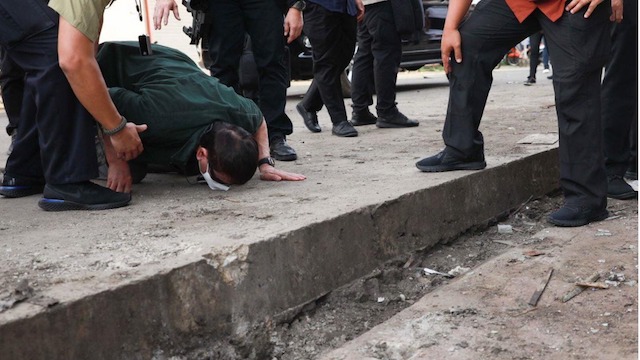
Terrorism remained a major problem in the Philippines despite the pandemic with twin bombings in Jolo on August 24. The bombings left at least 14 people dead and scores wounded.
Mafia-led PhilHealth corruption sparks public anger.

Filipinos were furious following claims that some PhilHealth officials allegedly pocketed around P15 billion in funds through different schemes while many struggle to pay for health care in the middle of the COVID-19 pandemic.
Manila Bay gets dolomite 'white sand' for Filipinos' mental health.
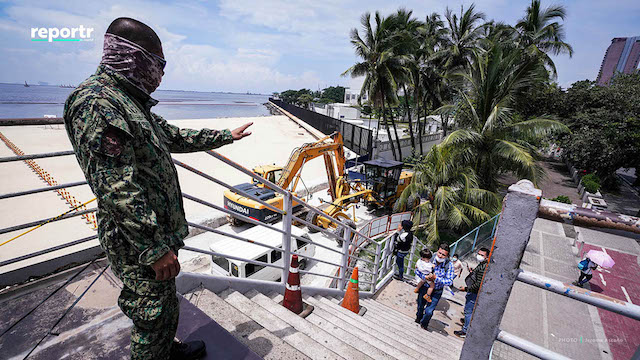
For a moment in 2020, a patch of artificial white sand on Manila Bay became a rallying point for critics, what with its price tag and reason for being. Presidential Spokesperson Harry Roque said the white sand beach would help Filipinos improve their mental health during these challenging times. The dolomite sand soon became the subject of memes as netizens kept a watchful eye on it during heavy rains and storms.
An ostrich runs around in a Quezon City subdivision.
[facebook:https://ift.tt/3gqrDhT]
It was the year that keeps on giving. Just when Filipinos thought they have seen all sorts of crazy with the pandemic, an ostrich was caught on video running wild in a Quezon City subdivision in August. The video showed the giant flightless bird, galloping down a street as bystanders moved to the sidewalk and as a dog chased it. It spawned memes as people have been staying home while the bird was out in the streets.
A liver spread fiasco fuels more 2020 anger.

With all the madness that 2020 has to offer, even Filipino favorite Reno liver spread was not spared. Filipinos took to social media to complain over an advisory of the Food and Drug Administration in September that the popular liver spread brand lacks the seal of approval. The FDA again earned the ire of Filipinos months later for issuing a public health warning against SM Bonus sugar.
Kali, the last captive-bred tamaraw, dies.
[facebook:https://ift.tt/34F9qZN]
Kali, the last captive-bred Mindoro tamaraw, passed away in October. The 21-year-old tamaraw symbolized hope for a critically endangered species that is also a national symbol. His passing reignited public attention on the plight of the Mindoro tamaraws, whose population the government tried to salvage for four decades.
U.S. Marine who killed Filipino transwoman walks free.
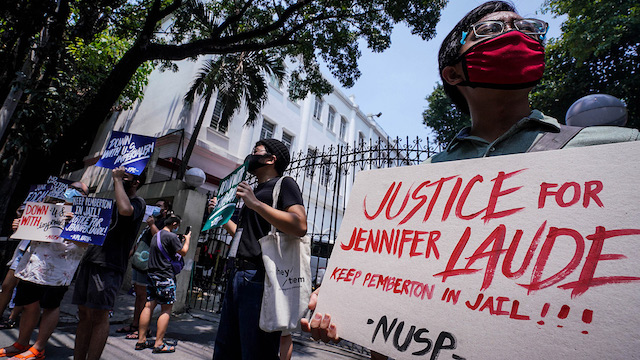
President Duterte in September granted American serviceman Joseph Scott Pemberton pardon for the killing of Filipino transwoman Jennifer Laude some six years ago. Pemberton was released on account of good conduct credits. Former Laude lawyer Harry Roque who now works as Duterte's spokesperson announced the grant of pardon, saying he respects the wisdom of the President. The move was decried by LGBT and rights groups in the country as the Philippines fought hard to keep Pemberton in its custody.
Strong typhoons complicate virus reality.
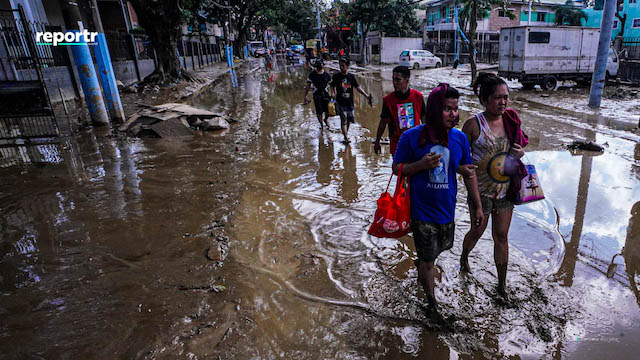
From late October to November, Filipinos had another enemy aside from the virus, albeit a seasonal one. Starting with Quinta, the country had to hunker down for five successive storms including Rolly, Siony, Tonyo and Ulysses. The year's most powerful storm in the world—Rolly—pounded the Bicol region while Ulysses spawned floods in Metro Manila reminiscent of typhoon Ondoy's.
"Pastillas" became code for bribery.

The famous milk candy made from carabao's milk took on a different meaning in February, becoming synonymous with bribery. The Bureau of Immigration came under fire for the so-called "pastillas" scheme where authorities reportedly accept bribes—money rolled in white paper like the traditional candy—in exchange for the smooth entry of Chinese nationals in the country.
RC Cola introduces the most bizarre ads.

RC Cola brings in more crazy in 2020 with its commercials that refuse to play by the rules and insist on being the outlier as it moves to court Gen Zs. The commercials send a simple but bizarre message: Basta, the ad's creators from creative agency GIGIL said.
Hey, Spotters! Check us out on Viber to join our Community and subscribe to our Chatbot.
Source: Spot PH
No comments:
Post a Comment